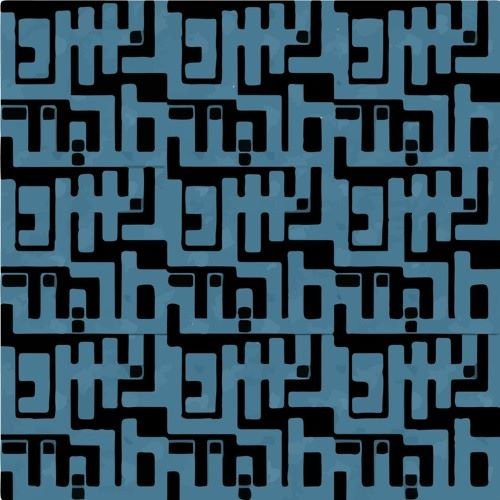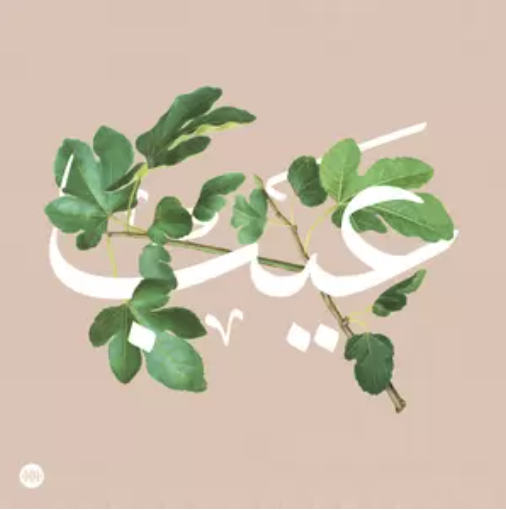Eib Podcast
We have been fans of the Eib podcast by Sowt since 2015, when Eib and Sowt were just beginning. Over the years, Sowt has grown to include many different shows and Eib has become popular throughout the MENA/SWANA region and beyond. The show tackles a range of difficult topics that are rarely discussed openly in the region.
The word eib (عيب) doesn’t have an exact English equivalent. It is often translated as “taboo” (which, for the language nerds out there, is actually a Tongan word) and the plural of eib, عيوب, means “flaws”. The meaning of eib is some combination of taboo and personal flaw; it’s doing or talking about something that breaks or strains societal norms and may be considered immoral.
From blocking people on social media to interfaith relationships to gender and sexuality, the Eib podcast covers all kinds of topics that can be difficult - or in some cases forbidden - to discuss in public. The conversations are educational and intriguing. Episodes range in length and most follow a similar format with a main guest or two who tell their story and a host who guides listeners through it.
Today, we're focusing on an episode from 2019 called Love After Death (الحب ما بعد الموت). This episode is hosted and produced by Farah Barqawi with Rita as a guest. Rita’s husband died suddenly a few years ago. In this episode, Rita talks about how she and her husband, Ali, met and built their lives together. She shares how his death affected her and discusses finding intimacy after losing Ali.
Eib is available wherever you get your podcasts and there’s a full Arabic transcript of this episode on Sowt’s website so you can read along while you listen. We’ve translated a few important sections of the transcript here to help you follow along.
Partial Transcript of Love After Death
Eib Season 4, Episode 5
Transcript translated by Fi Kalam with support from Saeed Alaktaa
4:02
بهاي الحلقة رح نفوت مساحة كتير ناس بتتجنب تفوتها أو تحكي عنها أو حتى تعطي رأيها فيها. عن الفقد اللي ما بنقدر نغيّره أو نسترجعه، وعن كيف بنحكي وبنتعامل معه. عن كيف بنكمّل حياتنا بكل تفاصيلها، وكيف بنعيش رغباتنا وخيالاتنا، وكيف بنستكشف مشاعرنا وبنحب من جديد، والشخص اللي فقدناه وحبنا إله عايشين جواتنا. عن الحب، والموت، والحب بعد الموت
In this episode, we’ll enter a space that a lot of people avoid entering, talking about, or even sharing their opinion on. About a loss that we can’t change or take back, and about how we talk about and deal with it. About how we continue our lives fully, how we live the lives we desire and imagine, and how we explore our feelings and love again while the person who we loved and lost lives on within us. About love, death, and love after death.
6:10
بإحدى الأمسيات من حوالي 6 سنوات، كانوا ببيتهم بعد يوم طويل، وبدون أيّة مقدًمات، أصيب علي اللي كان وقتها بالنصف التاني من أربعيناته بأزمة قلبية حادّة ما قدر يتجاوزها. وراح. ما في شي زيو أبداً حسيت فيه هاد الوجع، وجع هيك يعني بحس قلبي بيتحرك من مكانه، بينعصر يعني فيسيكالي بحسو كأنو فعلاً عم يتفعص قلبي
On an evening about 6 years ago, they were at home after a long day, and without any warning, Ali, who was in his mid 40s, had a massive heart attack and died. “I had never ever ever felt anything like that pain. The pain, it was like my heart was out of place. A squeezing, like physically I felt my heart was actually tightening."
9:12
بابا مات، مش حنشوفو تاني وإحنا زعلانين جداً ومتضايقين جداً. بس مافيش حاجة نقدر نعملها، هو موجود في قلبنا
“Baba died, we can’t see him again and we’re very sad and very upset. But there’s nothing we can do about it, he’s still here in our hearts.”
10:36
الصورة من برا بتظهر فيها ريتا امرأة جبّارة ومسيطرة عالموقف كتير منيح، أو يمكن هاي الصورة الوحيدة اللي بتخلي بعض الناس يعرفوا يتعاملوا مع الموقف، إنهم ياخدو مسافة من مشاعر الشخص اللي فقد شي كبير بحياته، ويختصروا كل نضالها من أجل البقاء بإنه دليل على القوة، أما الحديث عن تفاصيل الفقد فبيخلق غرابة بالحديث، وبالتالي ما بينحكى فيها
From the outside, Rita was strong, commanding, and put together. Or maybe this is the only picture some people had of how to handle the situation - to distance themselves from the feelings of someone who lost something very important in their lives, to simplify all of her struggle to survive as proof of strength. As for discussing the details of loss, that makes conversations awkward, and consequently, it’s something we don’t talk about.
14:05
ومع إنه كتير مراجع بحثية بترتّب الحداد على مراحل؛ بتبدأ من الإنكار وبعده الغضب وبعده التفاوض وبعده الاكتئاب والإدراك وبالآخر القبول، إلا إنه مش بالضرورة هالمراحل تتوالى بشكل خطّي ومنطقي، ولا إنه كل مرحلة لازم تخلص عشان نعيش اللي بعدها
There are a lot of research studies about the order of mourning, on the stages; it starts with denial, then anger, then negotiating, depression and realization, and finally acceptance, but the stages aren’t necessarily a linear and logical progression, and not every stage has to end before the next begins.
16:52
استمرت حالة الصمت عن التعبير واللون الأسود ومراقبة العالم والغربة عن النفس سنتين تقريبًا. وبأثناءها، كانت ريتا شوي شوي عم تستوعب ضرورة إنها تتعرف على حالها من جديد، على نفسها المستقلة، على شو حاسة وشو بدها، وكيف تعبّر عنه، لكن كمان اختارت تبدأ من مكان صامت
The silence continued in its form, its black color. She watched people and her estrangement from herself for almost two years. Meanwhile, little by little, Rita was understanding the importance of getting to know herself anew, her independent self, how she felt, what she wanted, and how to express that. However, she chose to begin from a place of silence.
21:15
ريتا فاتت بعلاقة بيسموها أحيانًا علاقة تروما أو علاقة مبنية على الصدمة، بتخلق نوع تعلّق بنفكر إنه رح يعوّضنا عن اللي فقدناه أو يحمينا من الوحدة أو يعفينا من مواجهة الأسئلة الكبيرة اللي عم تطرحها الحياة علينا بهيك فقد
Rita entered into a relationship, that’s sometimes called a “trauma relationship” or a relationship built on shock: you create a type of attachment that we think will fill the void of our loss, protect us from loneliness, or excuse us from confronting the big questions that life is asking us with that loss.
23:12
لما فاقت ريتا من التجربة الأولى بعد الفقد، أدركت حاجتها لشيء مختلف. كانت نسخة جديدة عن حالها ما بتعرفها، وحست إنها محتاجة تركز بحياتها بكل تفاصيلها من جهة وكمان محتاجة تبني علاقة بينها وبين هاي النفس الجديدة
When Rita overcame this first [relationship] experience after the loss [of Ali], she realized that she needed something different. It was a new and unfamiliar script for her and she felt that she needed to focus on re-examining her life in detail and that she needed to construct a relationship with this new version of herself.
27:10
بالنسبة لريتا، هي كانت طول عمرها متصالحة مع رغباتها. كانت شغوفة، بتستمتع بكل شي حلو، بالأكل، وبالقصص، بالغنا وبالرقص، وكمان بالجنس. أو باختصار، ريتا شخص بيستمتع بكل الأشياء اللي بتمتع البشر على اختلافهم، وهاد الشيء ما بيغير من واقع الحداد أو الحزن، أو إنه مثلًا يكون عكس الوفاء
As for Rita, for her whole life she was reconciling her desires. She was passionate; she liked nice things - food, stories, singing, and dancing, and also sex. In short, Rita is a person who enjoys the whole diverse array of things that humans enjoy. Mourning or sadness doesn’t change this and it isn’t the opposite of loyalty.
31:58
أخد وقته بالأول كتير لياخد خطوة لقدام، ببناء علاقة مع الأولاد، وبالنسبة لإلي هيدا كان كتير مهم. وبنى علاقة معهم على إنه صديقهن. وهن أصدقاؤه. فالأولاد بيعرفوا عنه على إنه مين هيدا؟ هيدا صديقي. مع إنه هو كمان ممكن يقولوا هيدا صاحب ماما، بس بالنسبة لإلن هم بيشوفوه كصديقهن. فبالنسبة لإلي هيدا مريح إنه نجحنا ما بيننا إحنا الاثنين إنه كمان نخلق هيدا النوع من العلاقة الصحية، يعني أنا مطمنة يعني الأسئلة اللي كانت حاضرة عند الأولاد كانوا مرتاحين يسألوها إن كان لإلي أو لصاحبي
In the beginning, he really took his time taking that step towards building a relationship with the kids and for me this was really important. Building a relationship with them as his friends. And they are friends. So the kids know him, like who is this? This is my friend. And maybe they’ll also say, this is mama’s boyfriend, but for them, they see him as their friend. This is a relief for me, that the two of us succeeded and that we’re creating this healthy type of relationship. I’m reassured that the questions that the kids had, they felt comfortable asking them to me or to my boyfriend.
33:50
الموت حقيقة كبيرة، كتير مننا بيضلوا عمرهم كله يهربوا منها بالاستسلام لأفكار مثل السرعة والتنافس والاستقتال للحصول على علاقات أو أشياء. بس الموت جاي، والخوف منه هو تحقيق إله بدل ما نعيش الحياة، نعيشها وإحنا عارفين إنها غالية وبتستحق كل لحظة متعة وحرية
Death is a fact of life. A lot of us spend our whole lives running away from it by distracting ourselves with things like speed, competition, and trying to be in relationships, etc. But death comes, and fearing it is succumbing to it, rather than living our lives knowing that every moment is precious and deserves to be fun and free.
37:55
الحب والارتباط بعد الفقد أو حتى الانفصال، مش سهل أبدًا وغالبًا لسه مش متاح لغالبية النساء في مجتمعنا، بسبب الأعراف والتقاليد، وتحديدًا لو كانوا أمهات
Love and relationships after a loss - or even a break up - is never easy and often not even an option for the majority of women in our society due to customs and traditions, especially if they’re mothers.
39:15
ريتا حبّت عن جديد، وقدرت تبني شراكة تساعها وتساع ولادها اللي عم يكبروا، وكمان تساع عالمها. وريتا لسه بتحب علي، ولسه بتعيش معه شراكة خاصة برغم الغياب
وهاي التجربة فتحتها على حياة جديدة الحب فيها أكبر من وجود الجسد، وأكبر من الحزن، وأكبر من كلام الناس، وأكبر من الخوف والعيب
Rita loved anew and she was able to build a partnership, big enough for herself and her children to grow in, and also to expand her world. Rita still loves Ali and shares a special partnership with him, despite his absence.
And this experience opened her life up to new love that was bigger than the body, bigger than sadness, bigger than what people say, and bigger than fear and taboo.









